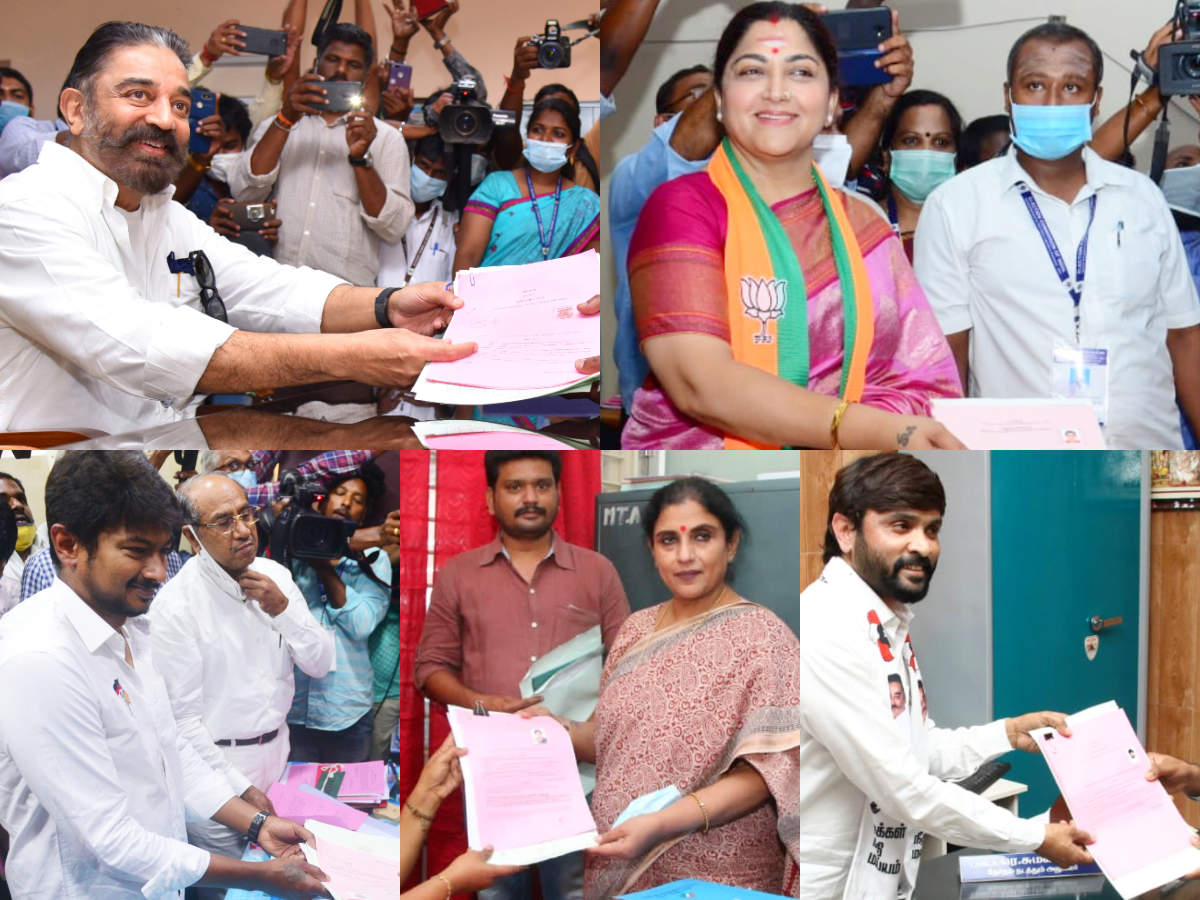Vaccination silver lining but Maharashtra’s rising Covid graph worries Bollywood
They took the lockdown in their stride and then the cap on theatre occupancy but the rising COVID-19 graph in Maharashtra, a prime market, is cause for serious worry for filmmakers hoping their upcoming big ticket releases will spell resurgence for the embattled Hindi film industry.
The vaccination drive is a silver lining but the clouds of uncertainty have darkened with the Maharashtra government announcing earlier this week that cinema halls will have to continue to function with 50 per cent occupancy at least till March 31.
The Central government had allowed theatres to run at full capacity from February after a gap of nine months.
Director Sanjay Gupta, whose John Abraham starrer Mumbai Saga is slated for release on March 19, admitted the COVID-19 situation in the state, home to the Hindi film industry and accounting for almost 60 per cent of the total number of new, daily cases in the country, is worrying.
“When we announced (the release) we knew that theatres were open with only 50 per cent occupancy so the same is not really alarming. What is worrisome is the COVID numbers rising,” Gupta told PTI.
 Mumbai Saga is set to release on March 19.
Mumbai Saga is set to release on March 19.
Besides Mumbai Saga, other films getting ready to release are Parineeti Chopra– Arjun Kapoor starrer Sandeep and Pinky Faraar, Rana Daggupati’s Haathi Mere Saathi and the Saina Nehwal biopic Saina. Rajkummar Rao and Janhvi Kapoor’s horror comedy Roohi, among the first major films to release theatrically after the Centre allowed theatres to run at full occupancy, is being screened in cinemas.
The coming months will also see the release of tentpole films such as Akshay Kumar’s Sooryavanshi, Ranveer Singh’s sports drama 83 and Salman Khan’s Radhe.
Shibasish Sarkar, group CEO of Reliance Entertainment, the banner behind the highly anticipated Sooryavanshi and 83, expressed the hope that the vaccination drive, which began this month, will help ease the situation in the state.
“I am hopeful that very soon the surge in the COVID numbers will come under control, and the restrictions of 50 per cent in cinema halls also will be removed,” Sarkar told PTI.
He added that the team is not alarmed by the guidelines as the safety of people is a priority.
“Health and people’s safety are more important than entertainment. If the government has felt that certain restrictions need to be maintained, that’s fine. Vaccinations are happening pretty aggressively.”
 Sooryavanshi was initially scheduled for a release in March 2020.
Sooryavanshi was initially scheduled for a release in March 2020.
Sooryavanshi, directed by Rohit Shetty, is set to be released on April 30, more than a year after its scheduled release date.
In an Instagram post, Shetty described the ongoing vaccination drive as a “silver lining” for the team.
“As you all must be aware that theatres in Maharashtra have been currently permitted to run at 50 per cent auditorium capacity as a precautionary measure to prevent the spread of COVID-19, and we support the government of Maharashtra’s decision in doing so.
“However, the silver lining is that the vaccination drive is being conducted in full swing too. More than 2.5 crore people across India and more than 22 lakh people in Maharashtra have been vaccinated so far,” Shetty wrote on Instagram.
The COVID-19 situation in the country will be better by the time his film releases, he hoped.
“We, therefore, believe that by the time our film comes out, it will be safe for you and your family to walk into a cinema hall and we also hope that the restrictions on the auditorium capacity are lifted by then,” he wrote.
The continued occupancy cap has only made matters worse for local exhibitors.
Manoj Desai, executive director of Mumbai’s G7 Multiplex and Maratha Mandir, said the occupancy cap, which has been in place since the state opened cinema halls in November, has damaged business.
Roohi, for instance, netted more than Rs 8 crore within three days of its release last Friday but Desai said business was half of what it should have been.
He screened the horror comedy at his Bandra-based Gemini cinemas with packed shows and alternate seating arrangement.
“We would have done better business if the cinema halls were operating at full capacity. We thought this cap would be lifted soon but that still hasn’t happened, which is definitely causing us losses. Even if ‘Roohi’ did well, our business was half because of the limitation,” the veteran exhibitor told PTI.
The rising number of COVID-19 cases in Mumbai will discourage people to step inside cinema halls.
“People are visiting cafes and restaurants, some normalcy seems to have been restored. But that should now translate to cinema halls. There are big films lined up, there’s a strong buzz for new releases and the vaccination drive is also encouraging.
“If theatres don’t open at full capacity and if more guidelines come in place, it won’t be good for us,” Desai said.
Looking at a pan India picture, Bihar-based exhibitor Vishek Chauhan said the Maharashtra government’s decision on occupancy will neither affect Bollywood’s release calendar nor dent potential box office collection of upcoming films.
In January, Tamil actioner Master surprised the trade when the Thalapathy Vijay and Vijay Sethupathi starrer grossed more than Rs 150 crore domestically, at 50 per cent occupancy.
Chauhan said the fact that Master broke box office records — with limited occupancy and merely 16 days before it started streaming on Amazon Prime Video — proved that no amount of restrictions can halt a film’s business.
“If it’s a movie which carries tremendous excitement, people will turn up even at 25 per cent. So the guidelines don’t really matter to the audience,” Chauhan said.
The exhibitor also expressed the fear that there could be a huge setback if Maharashtra goes under complete lockdown.
“If you derail Maharashtra again, you’re looking at a bigger financial crisis. No one wants that. But the current occupancy changes nothing. There are film announcements everyday, makers are excited and no one is deferring their releases,” he added.
On Tuesday, Maharashtra recorded 17,864 new cases, its highest one-day rise this year, and 87 deaths. The count includes 1,954 fresh cases in Pune, followed by 1,951 in Nagpur and 1,922 in Mumbai city.

